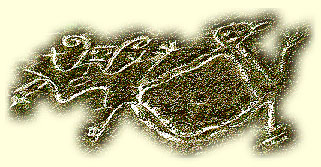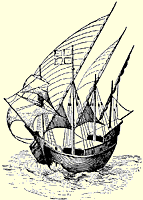| Home
Page
History & Culture
Admiral
Horatio Nelson
Points
of Interest
Brimstone
Hill Fortress
Basseterre
Nevis
Charlestown
Beaches
Activities
Diving
Fishing & Boating
Golfing
Eco-Adventures
Travel
Tips
Transportation
Accommodations
Restaurants & Nightlife
Calendar
of Events
Destination
Specialists
Best
Bets
Tourist
Offices
Geographia
|

St. Kitts & Nevis
Original Official Site of
the St. Kitts & Nevis
Department of Tourism
 As
was the case all over the Caribbean, St. Kitts and Nevis were
first settled by Arawak and Carib Indians moving up through the
islands from South America between five and seven thousand years
ago. When Christopher Columbus arrived in 1493, both islands
had long been occupied by substantial Indian communities. However,
by the early 17th century the inhabitants of Nevis had disappeared--victims
of Spanish attacks, European diseases, and, possibly, forced
labor on an ill-fated Spanish pearl diving project on Cubagua,
an island off the Venezuelan coast. As
was the case all over the Caribbean, St. Kitts and Nevis were
first settled by Arawak and Carib Indians moving up through the
islands from South America between five and seven thousand years
ago. When Christopher Columbus arrived in 1493, both islands
had long been occupied by substantial Indian communities. However,
by the early 17th century the inhabitants of Nevis had disappeared--victims
of Spanish attacks, European diseases, and, possibly, forced
labor on an ill-fated Spanish pearl diving project on Cubagua,
an island off the Venezuelan coast.
 Until
recently it was thought that Christopher Columbus provided both
St. Kitts and Nevis with their European names. As the story goes,
the Great Navigator dubbed the larger of the two islands St.
Christopher, in honor of the patron saint of travelers. Although
it may not have been Columbus who named the island, it was almost
certainly British sailors who shortened St. Christopher to the
familiar St. Kitts. Whatever its origins, the gesture toward
St. Christopher makes sense, as the islands' visibility and position--as
well as their comforts--made them common first targets for early
trans-Atlantic navigators. Captain John Smith, for example, landed
on Nevis in 1607 on his way to establish the colony of Virginia.
Smith and his companions spent five days resting and relaxing
on the island, enjoying Nevis' hot sulfur baths while recuperating
from the long passage. Nevis derives its name from the Spanish
phrase "Nuestro Senora del las Nieves"--in English,
Our Lady of the Snows. Columbus had settled upon St. Martin (as
he sighted the island on that saint's feast day), but the permanent
halo of white clouds shrouding the island's central peak suggested
a snow cap to early Spanish sailors. Until
recently it was thought that Christopher Columbus provided both
St. Kitts and Nevis with their European names. As the story goes,
the Great Navigator dubbed the larger of the two islands St.
Christopher, in honor of the patron saint of travelers. Although
it may not have been Columbus who named the island, it was almost
certainly British sailors who shortened St. Christopher to the
familiar St. Kitts. Whatever its origins, the gesture toward
St. Christopher makes sense, as the islands' visibility and position--as
well as their comforts--made them common first targets for early
trans-Atlantic navigators. Captain John Smith, for example, landed
on Nevis in 1607 on his way to establish the colony of Virginia.
Smith and his companions spent five days resting and relaxing
on the island, enjoying Nevis' hot sulfur baths while recuperating
from the long passage. Nevis derives its name from the Spanish
phrase "Nuestro Senora del las Nieves"--in English,
Our Lady of the Snows. Columbus had settled upon St. Martin (as
he sighted the island on that saint's feast day), but the permanent
halo of white clouds shrouding the island's central peak suggested
a snow cap to early Spanish sailors.
Click here to
see what visitors are saying about interesting places in St.
Kitts & Nevis.
|
|


 As
was the case all over the Caribbean, St. Kitts and Nevis were
first settled by Arawak and Carib Indians moving up through the
islands from South America between five and seven thousand years
ago. When Christopher Columbus arrived in 1493, both islands
had long been occupied by substantial Indian communities. However,
by the early 17th century the inhabitants of Nevis had disappeared--victims
of Spanish attacks, European diseases, and, possibly, forced
labor on an ill-fated Spanish pearl diving project on Cubagua,
an island off the Venezuelan coast.
As
was the case all over the Caribbean, St. Kitts and Nevis were
first settled by Arawak and Carib Indians moving up through the
islands from South America between five and seven thousand years
ago. When Christopher Columbus arrived in 1493, both islands
had long been occupied by substantial Indian communities. However,
by the early 17th century the inhabitants of Nevis had disappeared--victims
of Spanish attacks, European diseases, and, possibly, forced
labor on an ill-fated Spanish pearl diving project on Cubagua,
an island off the Venezuelan coast.  Until
recently it was thought that Christopher Columbus provided both
St. Kitts and Nevis with their European names. As the story goes,
the Great Navigator dubbed the larger of the two islands St.
Christopher, in honor of the patron saint of travelers. Although
it may not have been Columbus who named the island, it was almost
certainly British sailors who shortened St. Christopher to the
familiar St. Kitts. Whatever its origins, the gesture toward
St. Christopher makes sense, as the islands' visibility and position--as
well as their comforts--made them common first targets for early
trans-Atlantic navigators. Captain John Smith, for example, landed
on Nevis in 1607 on his way to establish the colony of Virginia.
Smith and his companions spent five days resting and relaxing
on the island, enjoying Nevis' hot sulfur baths while recuperating
from the long passage. Nevis derives its name from the Spanish
phrase "Nuestro Senora del las Nieves"--in English,
Our Lady of the Snows. Columbus had settled upon St. Martin (as
he sighted the island on that saint's feast day), but the permanent
halo of white clouds shrouding the island's central peak suggested
a snow cap to early Spanish sailors.
Until
recently it was thought that Christopher Columbus provided both
St. Kitts and Nevis with their European names. As the story goes,
the Great Navigator dubbed the larger of the two islands St.
Christopher, in honor of the patron saint of travelers. Although
it may not have been Columbus who named the island, it was almost
certainly British sailors who shortened St. Christopher to the
familiar St. Kitts. Whatever its origins, the gesture toward
St. Christopher makes sense, as the islands' visibility and position--as
well as their comforts--made them common first targets for early
trans-Atlantic navigators. Captain John Smith, for example, landed
on Nevis in 1607 on his way to establish the colony of Virginia.
Smith and his companions spent five days resting and relaxing
on the island, enjoying Nevis' hot sulfur baths while recuperating
from the long passage. Nevis derives its name from the Spanish
phrase "Nuestro Senora del las Nieves"--in English,
Our Lady of the Snows. Columbus had settled upon St. Martin (as
he sighted the island on that saint's feast day), but the permanent
halo of white clouds shrouding the island's central peak suggested
a snow cap to early Spanish sailors.